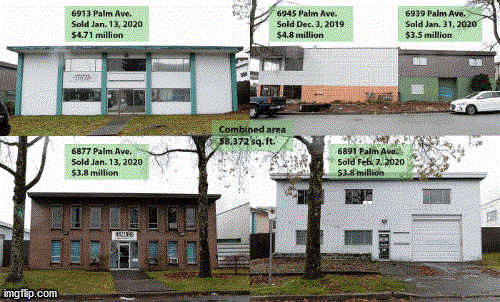“Tell Burnaby city council that you support new affordable housing.”
That’s the message being sent out in a new campaign by one of B.C.’s largest labour unions as it tries to convince Burnaby politicians to support its project.
“The B.C. General Employees’ Union (BCGEU) has purchased land in Burnaby to build its new office,” reads a post on a website designed to get people to sign up their support for the project. “To maximize use of this land and help address the housing crisis, the union has submitted a proposal to the City of Burnaby asking for rezoning that allows for towers (higher density) in order to create hundreds of affordable housing units as well as childcare spaces. This project would demonstrate a new model for how affordable housing can and should be developed for working people.”
The rezoning application is intended to make way for the union to build its headquarters and two mid-rise towers of rental housing over five lots on Palm Avenue.
Those two towers are expected to house roughly 300 residential units, at least half of which are expected to be “affordable” – if not all of them, according to BCGEU treasurer Paul Finch, in a February 2021 interview with the NOW.
By comparison, the city only requires multi-family developments to include 20% “affordable” rentals.
“We think that’s too low. So what we’re saying is we’re going to do a minimum of 50%, but we’re going to aim for 100%,” Finch said.
“What we’re going to do is any profit we make on this project we’re going to pour back into making more of the units affordable,” he said. “If there’s profit after that, we’re going to look at making them more affordable, more deeply affordable. So that’s the model. (We’re) super proud of it.”
Finch said he wants the 50% affordability model to be made the standard in developments – but that isn’t a new idea from the BCGEU. Back in July 2018 at a rally against demovictions in Burnaby, Finch similarly called for 50% affordability to be mandated in the city’s rental policies.
The building is also expected to house an affordable child-care centre, which Finch said will likely include both preschool-age child care and school-age care.



